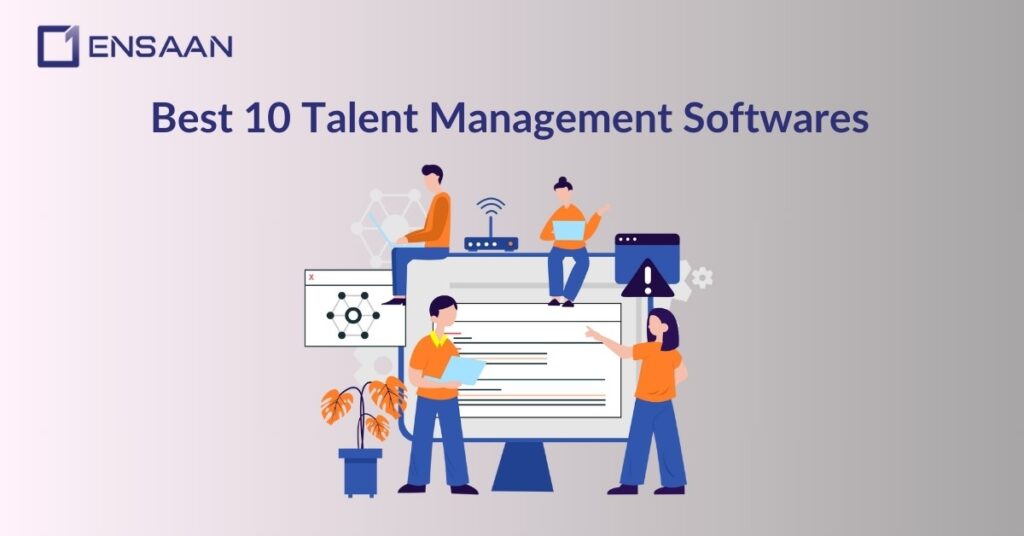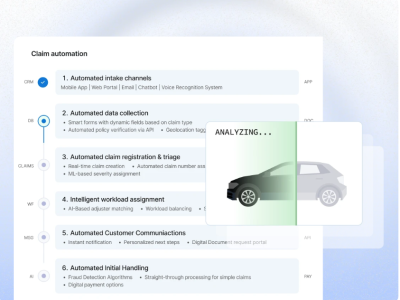Talent Management Systems provide companies with a platform to manage their employees more effectively by supporting processes like hiring, training and keeping staff engaged.
Using talent management can assist businesses in recognizing skill gaps and monitoring employee development, leading to smarter decision-making and greater success.
With remote work, AI and an increasingly competitive job market, HR departments require tools that will attract, develop and retain talent.
Talent Management Software (TMS) can be the solution.
In this blog post, we will explain 10 top talent management software platforms that you should consider using in 2025.
We will keep the discussion straightforward so that even non-tech-savvy folks will grasp the idea.
Let’s Get Started with Talent Management Software? to see where we stand today.

What is Talent Management Software?
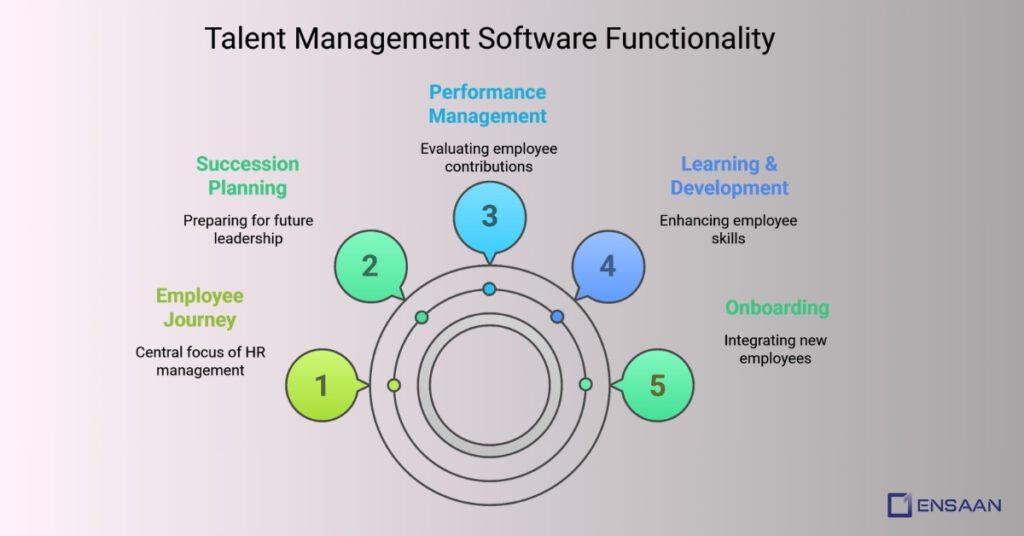
Talent Management Software is a digital tool that helps HR teams manage the entire employee journey from hiring to retirement. It usually covers:
- Recruitment
- Onboarding
- Learning & Development
- Performance Management
- Succession Planning
- Employee Engagement
With the right software, HR becomes smarter, faster, and more strategic.
Top 10 Talent Management Software in 2025
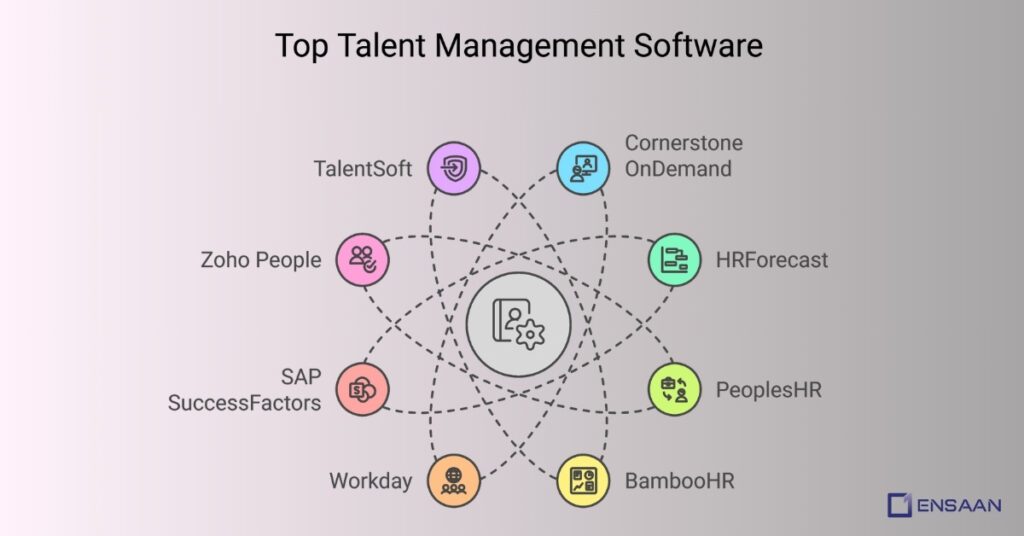
Here are 10 platforms that stand out in talent management, some you may already recognize while others may be worth checking further.
1. Cornerstone OnDemand
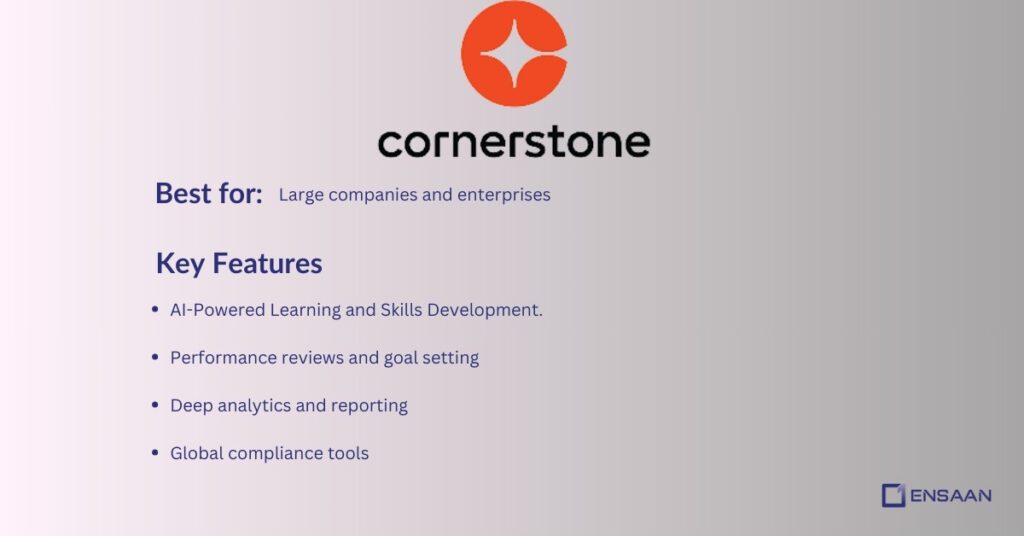
Best for: Large companies and enterprises
Cornerstone is one of the leading talent management solutions, designed to support large companies at scale with everything from recruiting and training services.
Key Features:
- AI-Powered Learning and Skills Development.
- Performance reviews and goal setting
- Deep analytics and reporting
- Global compliance tools
Why People Love It:
Cornerstone offers many features and is highly adaptable; it’s perfect if your company employs thousands of employees with complex HR requirements.
2. PeoplesHR
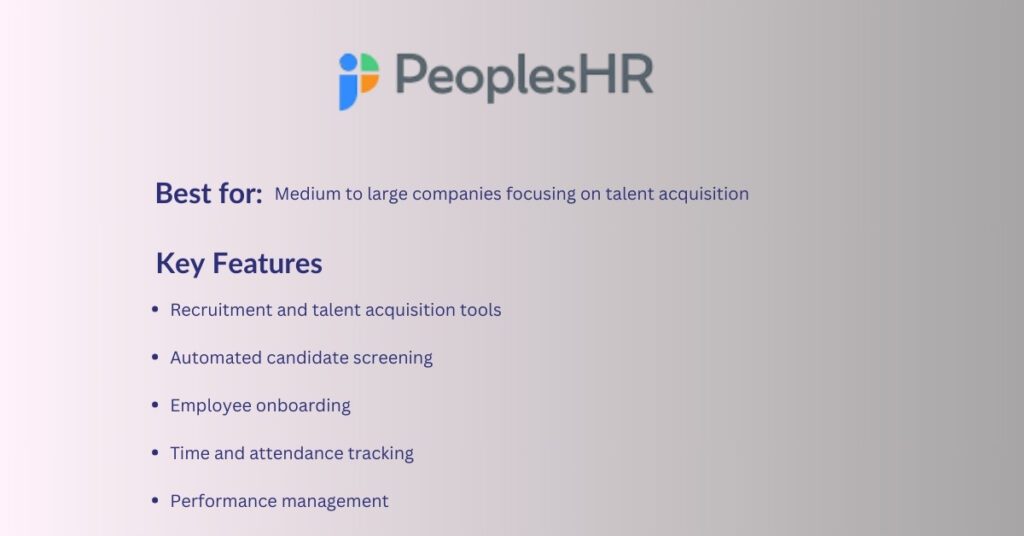
Best for: Medium to large companies focusing on talent acquisition
PeoplesHR helps businesses hire top talent quickly by offering recruitment-specific features and AI-powered tools.
Key Features:
- Recruitment and talent acquisition tools
- Automated candidate screening
- Employee onboarding
- Time and attendance tracking
- Performance management
Why People Love It:
PeoplesHR intuitive design and robust recruitment features make it a top choice for businesses looking to streamline their hiring process and foster employee growth.
3. HRForecast
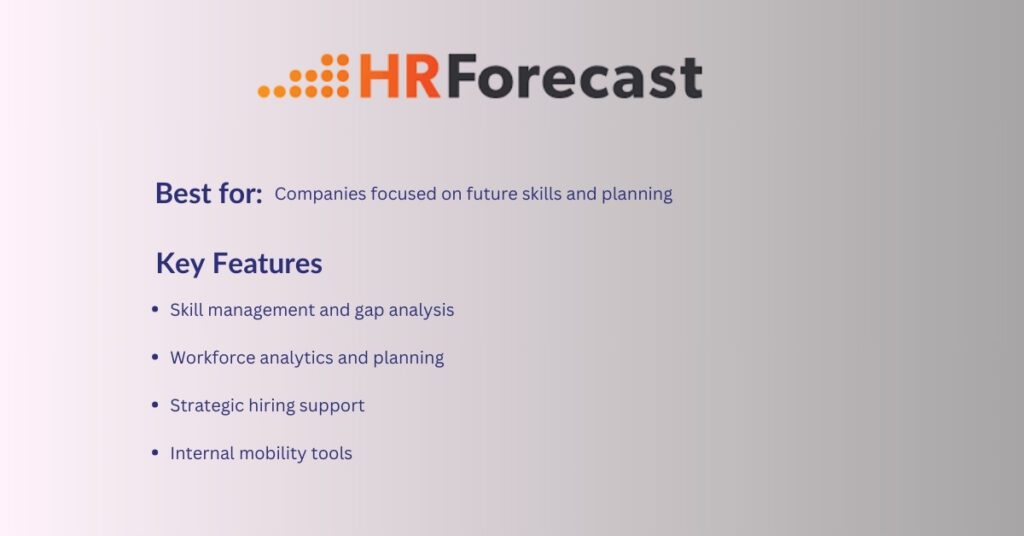
Best for: Companies focused on future skills and planning
HRForecast is best tool suited to organizations focused on future skills development and planning.
HRForecast provides predictive workforce planning. It helps companies identify which skills will be essential soon and provides a method to reach them.
Key Features:
- Skill management and gap analysis
- Workforce analytics and planning
- Strategic hiring support
- Internal mobility tools
Why People Love It:
Strategic hiring support gives organizations an invaluable insight into the future talent pool – perfect if you want to stay ahead of the talent curve!
4. BambooHR
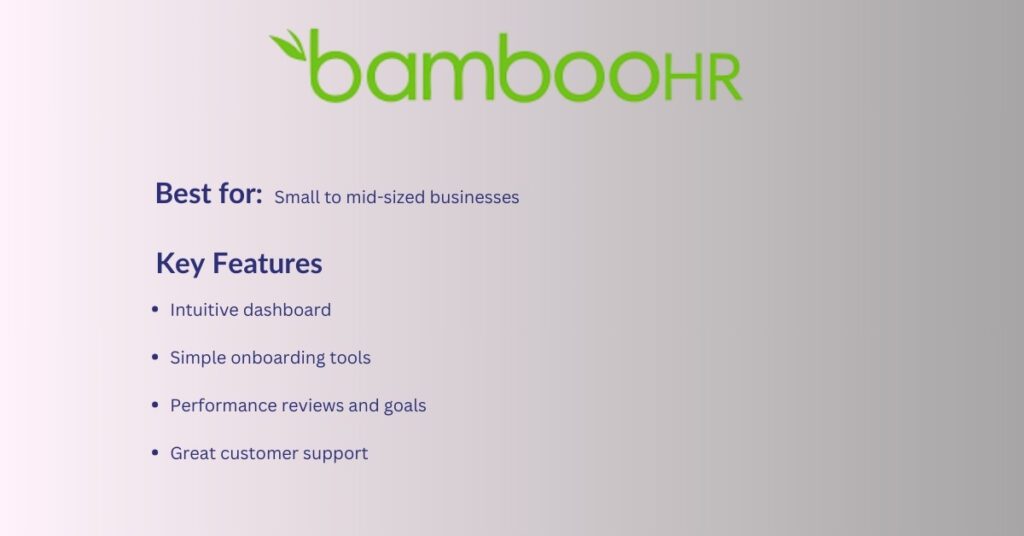
Best for: Mid-sized and large businesses
BambooHR is known for its simplicity and beautiful user interface. It covers core HR tasks and includes performance management, applicant tracking, and employee data storage.
Key Features:
- Intuitive dashboard
- Simple onboarding tools
- Performance reviews and goals
- Great customer support
Why People Love It:
It’s user-friendly, fast to set up, and affordable for smaller teams.
5. Workday
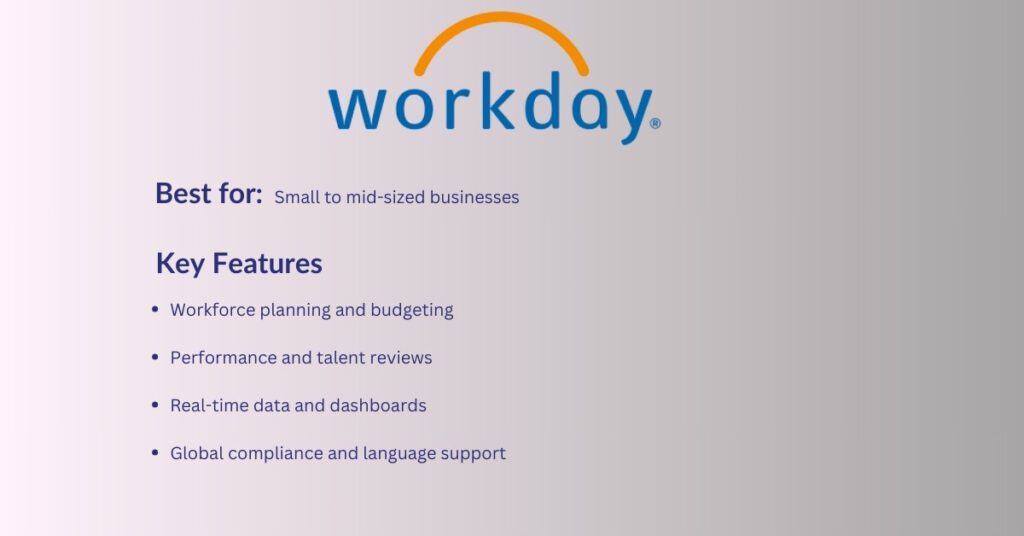
Best for: Large organizations with global teams
Workday is a big name in enterprise HR software. It combines HR, finance, and planning into one smart platform.
Key Features:
- Workforce planning and budgeting
- Performance and talent reviews
- Real-time data and dashboards
- Global compliance and language support
Why People Love It:
Workday is powerful, scalable, and future-ready. It’s a top choice for global corporations.
6. SAP SuccessFactors
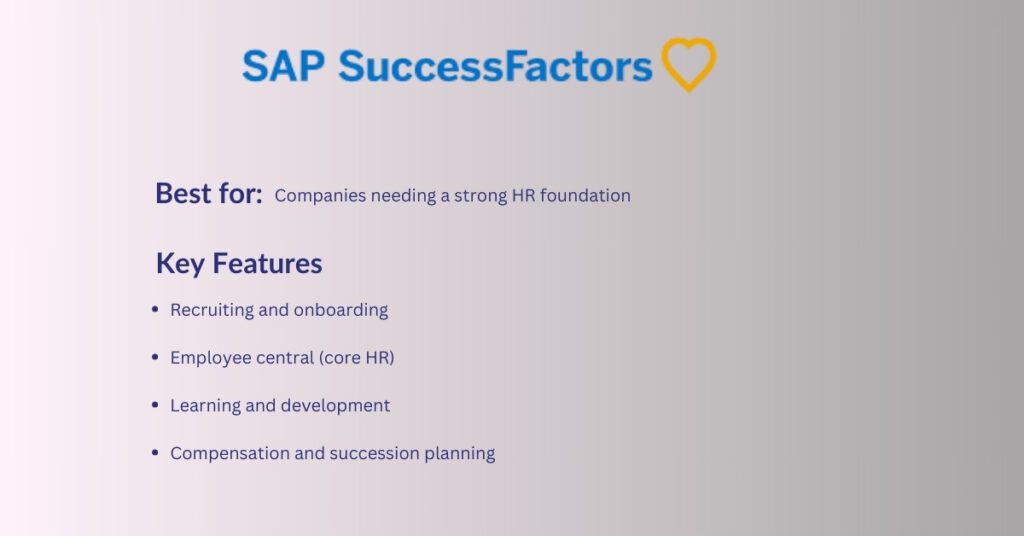
Best for: Companies needing a strong HR foundation
SAP SuccessFactors offers a wide range of HR tools that can be tailored to fit almost any business size.
Key Features:
- Recruiting and onboarding
- Employee central (core HR)
- Learning and development
- Compensation and succession planning
Why People Love It:
It integrates well with other SAP tools and has a solid track record with large companies.
7. Zoho People
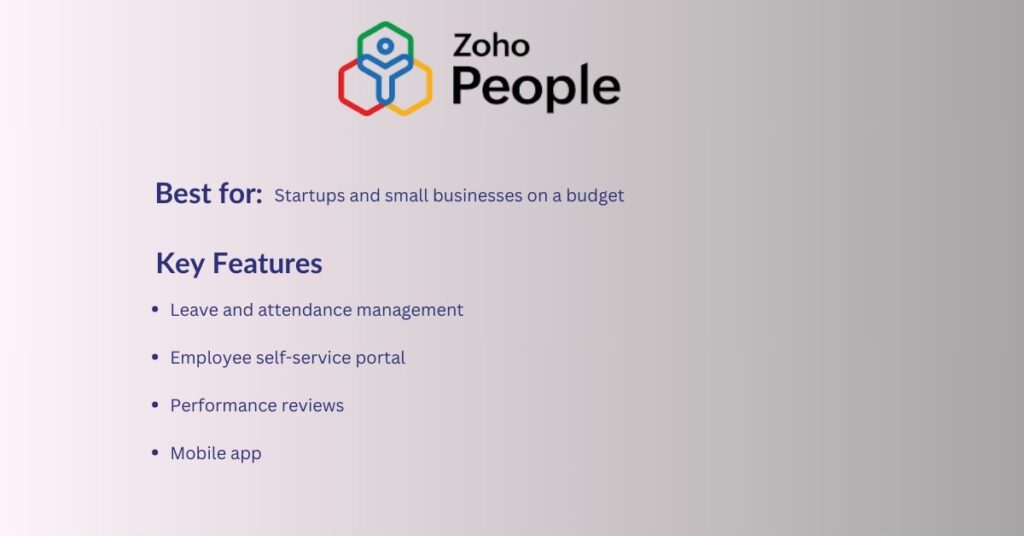
Best for: Startups and small businesses on a budget
Zoho People is part of the Zoho suite of business tools. It’s budget-friendly and integrates smoothly with other Zoho apps.
Key Features:
- Leave and attendance management
- Employee self-service portal
- Performance reviews
- Mobile app
Why People Love It:
It’s low-cost, easy to use, and perfect for growing businesses that need flexibility.
8. TalentSoft (now part of Cegid)
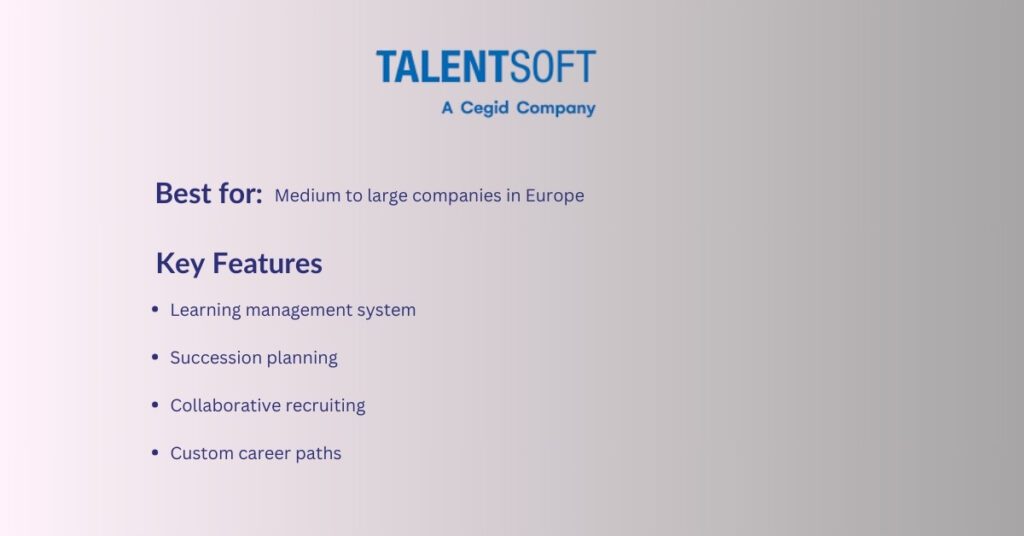
Best for: Medium to large companies in Europe
TalentSoft, now part of Cegid, is popular in Europe for its HR and talent solutions.
Key Features:
- Learning management system
- Succession planning
- Collaborative recruiting
- Custom career paths
Why People Love It:
It has strong compliance with European HR standards and great learning features.
9. Oracle
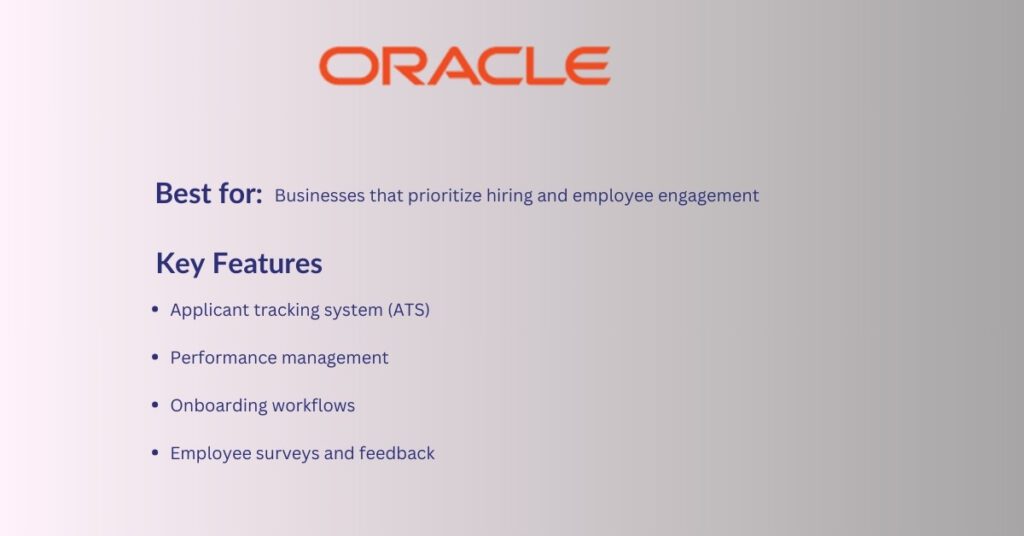
Best for: Businesses that prioritize hiring and employee engagement
Oracle offers a full talent management suite, but it really shines in recruitment and onboarding.
Key Features:
- Applicant tracking system (ATS)
- Performance management
- Onboarding workflows
- Employee surveys and feedback
Why People Love It:
It’s designed to keep employees engaged from day one.
10. Keka
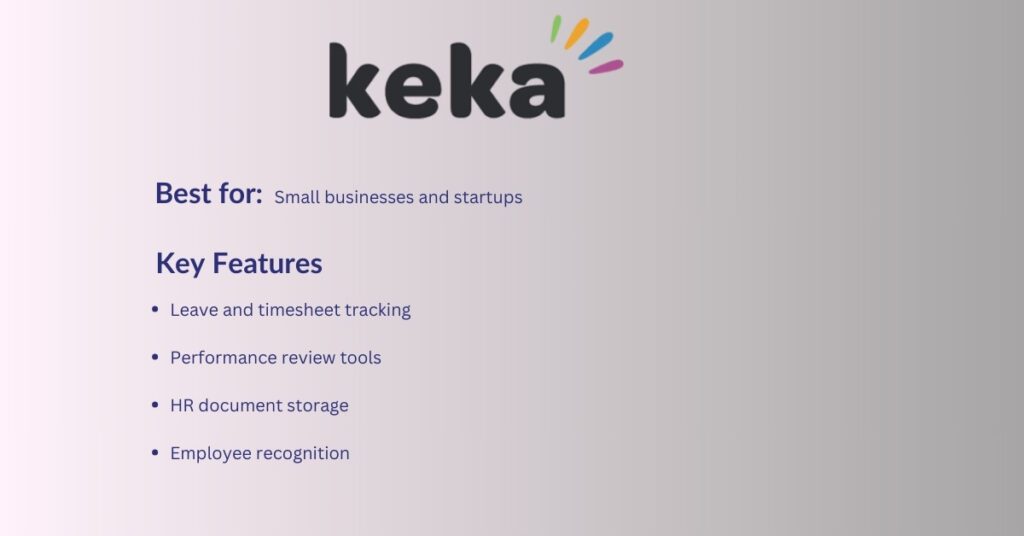
Best for: All Sizes of businesses and startups
Keka is an easy-to-use platform with a clean interface. It’s ideal for businesses just starting to digitize their HR processes.
Key Features:
- Leave and timesheet tracking
- Performance review tools
- HR document storage
- Employee recognition
Why People Love It:
It gets the job done without overcomplicating things.
How to Choose the Right Talent Management Software?
With so many options, how do you pick the right one?
Here are a few tips:
1. Know Your Needs
Are you an enterprise business owner looking for easy onboarding?
2. Think Long-Term
Choose a tool that can grow with you. Look for scalability and future-ready features like AI and analytics.
3. User Experience Matters
If your HR team (and employees) find the tool hard to use, it won’t help much.
4. Integration
Make sure your software can connect with payroll, email, calendars, and other tools you already use.
5. Budget
Some tools are more affordable than others. Decide what features are must-haves and what you can live without.

Conclusion
Talent management isn’t just about hiring the best people it’s about helping them grow, keeping them engaged, and planning. The right software can turn your HR team into a strategic powerhouse.
Whether you’re large or a global enterprise, there’s a talent management platform out there for you.
To recap, here are our top 3 picks:
- Cornerstone: For all-in-one enterprise solutions
- HRForecast: For future-proof workforce planning
- PeoplesHR: A Smart Talent Acquisition Solution
FAQs
Talent management software helps companies handle employee tasks like hiring, training, and performance tracking, making HR work simpler and more efficient.
Talent management software saves time, cuts down errors, helps find and grow the right talent, keeps employees engaged, and supports smarter HR decisions with data.
Not at all many affordable and easy-to-use tools like PeoplesHR and Cornerstone are perfect for mid-sized and large businesses too.
Yes! Most talent management tools are cloud-based, making them ideal for remote or hybrid teams. You can onboard, train, and give feedback all online.
Prices vary based on the software and team size. Some tools are just a few dollars per user, while larger systems cost more. Many offers free trials or custom quotes.
Choose tools that support hiring, onboarding, training, performance tracking, and goal setting. Helpful features include reports and dashboards to monitor team progress.
Setting up most platforms is simple, especially for mid-sized and large businesses. Bigger systems might take longer, but most providers offer setup help, training, and support
Yes, many platforms can link up with tools you already use, like payroll, calendars, or email, making everything work seamlessly and saving time for your HR team
Talent management software focuses on employee growth, such as hiring, training, and promotions. HR software (HRIS) handles basic tasks like storing records, managing leave, and payroll.
It depends on your company’s needs. For a full-featured system for a large team, Cornerstone is ideal. If you’re focusing on skills, HRForecast is great.

